In the December 20/27, 2004 issue of
The Presbyterian Outlook, the current Moderator of the Presbyterian Church (U.S.A.) General Assembly, Rick Ufford-Chase, delivered a message to the church.
Click on article to read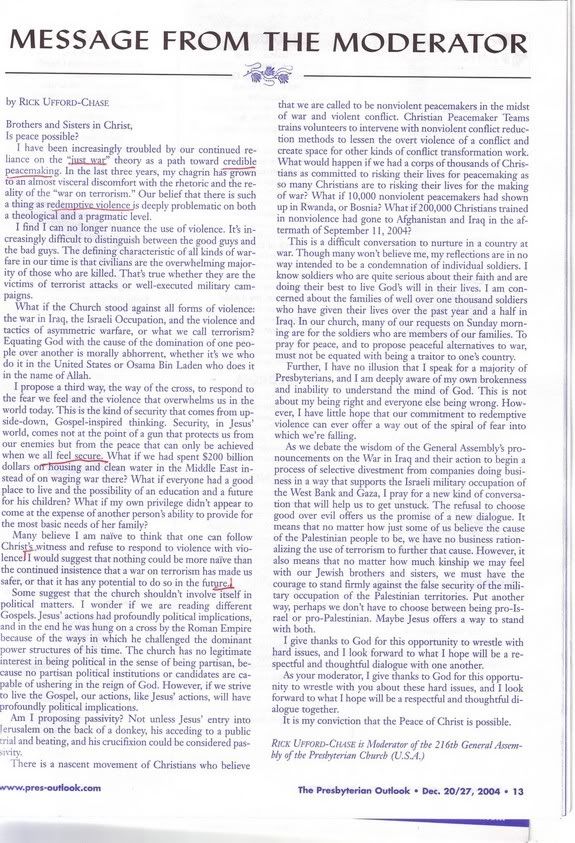
The subject of his article is raised in the first sentence, "Brothers and Sisters in Christ, Is peace possible?"
In a rambling response, reading more like a journal entry than a carefully crafted theological reflection, he shares his complete lack of a clear and cogent answer to the question.
He first considers and rejects the idea that a "just war" approach can ever lead to "credible peacemaking." Here he also equates "just war" with something called "redemptive violence" and finds this also "problematic on both a theological and a pragmatic level." With these words the Moderator raises concepts not even taught by scripture. They are "straw men" arguments, artificially brought forward for the simple purpose of easily dismissing them.
Nowhere, for example, does scripture ever describe warfare or violence as being righteous and holy. In this sense war is never "just" as God is "just." Nowhere does scripture declare that the "the peace which passes understanding" can be inaugurated with the sword. Nowhere does the Bible teach the concept of "redemptive violence" except in the case of animal sacrifice in the Old Testament and the crucifixion of Jesus in the New.
My response to this first point is one of wonder...wonder as to whether he has ever read
Romans 13:1-8. In this passage, the Apostle Paul declares that God has granted governmental authorities the power of the sword to assert order and justice within its bounds and to deter and repel those who would threaten the peace and security of its subjects from beyond its borders.
Under ordinary circumstances, scripture declares that the single-minded purpose of government-sanctioned violence is to resist and contain sin that threatens to corrupt or destroy the social fabric of an otherwise peaceful and secure nation.
In practice, war is not unlike biblical divorce. God permits divorce because of the "hardness of men's hearts" (
Matthew 19:3-9). Even so, God does not "bless" divorce or declare it to be "just." On the contrary, the mind of God on this matter is very clear: "'I hate divorce,' says the Lord your God" (
Malachi 2:16).
In the same way, God permits war because of the hardness of our hearts and the self-justified violence that ensues when rebellion against God leads to the intentional and wanton destruction of the life and liberty of others. Even so, God does not "bless" war or declare it to be "just." On the contrary, the mind of God on this matter is very clear: "Love one another as I have loved you:" (
John 13:34). While this command for mutual, reciprocal love is specifically intended for individual followers of Jesus to put into practice, it is clear that it is also characteristic of God's rule over nations, kings and lords as well. The meaning of scripture is, or ought to be, clear: "God hates war."
Along with God, we, too, should hate both divorce and war. But we should keep in mind that God "permits" them both as merciful concessions to our sin and to grant us the means to resist the oppression that constantly threatens us as individuals and as nations in a fallen world.
We have only to turn to World War II for a simple example of war engaged for the purpose of resisting the oppression that threatened us at that time. While ultimate judgment against evil remains with God alone, it is questionable theology to assert that it is more righteous to stand by while sin devours the innocent than it is to resist that evil by any and all means, including force, when all else has failed or is deemed to be futile.
While the murderous slaughter of millions of people (both military and civilian) did not usher in the "peaceable kingdom" of the Realm of God it did have the effect of curbing evil and setting innumerable numbers of people (mostly civilians) free from the yoke of tyranny and bigotry. Ask any Jew if they think that WW II was a war worth fighting.
Secondly, Mr. Ufford-Chase then states that he "can no longer nuance the use of violence. It's increasingly difficult to distinguish between the good guys and the bad guys." He then proceeds to equate any act of violence which kills civilians, "whether they are the victims of terrorist attacks or well-executed military campaigns."
The Moderator has committed a common but grievous error by confusing two distinct issues. He has conflated the matters of purposeful intent (motive) and particular outcomes. It is as though a man entered my home and beat my child to death to keep them quiet while committing a burglary and to then equate that with a child crushed to death under the wheels of his mother's car as she backed out of the driveway.
While the outcome is identical (a dead child) the motives are clear and distinct from each other. To dismiss this distinction as a "nuance" is nothing short of outrageous as is the attempt to classify them as morally equivalent.
Using a different example: It might be important to debate whether pursuing a suspected robber or murderer in a high-speed car chase is worth the risk of life and limb to the police officers and to others who might be caught in between; but it would be foolish to assert that the moral intent of the pursuing officers was indistinguishable from that of the fleeing suspect.
The Bible declares that the Lord judges peoples
hearts, not simply the consequences of their behavior. The Old Testament law is filled with examples of just how important the application of this "nuance" is to God. Motive and intent are not optional considerations in such things. Indeed, they form the veritable essence of morality.
Lastly, the Moderator proposes a "third way, the way of the cross." This "way of the cross" leads to "the kind of security that comes from upside-down, Gospel-inspired thinking." I would hope to think that Mr. Ufford-Chase would have rewritten his next sentence had he taken the time to proof-read it carefully: "Security, in Jesus' world, comes not at the point of a gun that protects us from our enemies but from the peace that can only be achieved when we all feel secure."
When this sentence is reduced to its simple noun, verb and subject essence, it reads: "Security comes when we all feel secure." It is from this tautological premise that the rest of the article proceeds...and fails either to persuade or to offer anything other than wishful thinking ("What if my own privilege didn't appear to come at the expense of another person's ability to provide for the most basic needs of her family?") and outrageous imaginings ("What if 200,000 Christians trained in nonviolence had gone to Afghanistan and Iraq in the aftermath of September 11, 2004?" (sic)).
Over the years I have seen many cars bearing a bumper sticker that reads, "Visualize World Peace."

Our General Assembly Moderator and all of us would do well to do the same (not the bumper sticker but the thought!). But to think that this sentiment rises to the level of "practical theology" is less than compelling.
On the other hand I must affirm our Moderator's comment that "many believe I am naïve to think that one can follow Christ's witness and refuse to respond to violence with violence." My family heritage on my mother's side is
Anabaptist pacifist. To avoid war and forced conscription is why they fled to American in the first place. Some were even slaughtered by Indians in 18th century Pennsylvania because they refused to use violence to defend themselves.
Christian pacifism is not naïve. It is a serious response to Jesus' call to introduce his kingdom into this world and live the fullness of the Christian life in a world that still operates in the context of sinful humanity.
While I respect this personal act of conscience among Christian believers I must disagree with any attempt to apply such a non-violent approach to the role of the ruling authorities of nations. As cited above in Romans 13:1-8, such leaders are given the authority to "wield the sword" by none other than God, from whom all power and authority are derived.
For this reason, the very next sentence from the Moderator not only appears to be in conflict with scripture but with historical reality and common sense as well: "I would suggest that nothing could be more naïve than the continued insistence that a war on terrorism has made us safer, or that it has any potential to do so in the future."
As individuals, especially within the context of the Christian community, we are not permitted to return
evil for evil, or an eye for an eye. We are called to love even our enemy and to pray that they might be transformed by grace, working through faith, to become the Holy Spirit-filled person that God created them to be.
I would never criticize any follower of Jesus who would stand before
Osama bin Laden, speaking the truth in love and, like Jesus, being willing to be
led like a lamb to the slaughter as a living witness to the higher and eternal truth of God's will for us all.
I would, however, quickly condemn any national leader who suggested that our country stand before those who would destroy us in a similar manner.
Perhaps this particular war on terrorism is
not making us any safer. That is a reasonable position to debate. But it is
not reasonable to conclude that there is no possibility that a war on terror might make us any safer now or ever.
Israel is a lot safer with a wall and a vigilant military protecting it from those who would take pleasure in murdering their women and children along with anyone else who might be identified as a Jew.
It is also worth noting that our own national independence and the unprecedented guarantees of freedom that we enjoy were gained through the sacrifice, death and destruction of war.
"Four score and seven years later," would our Moderator suggest that the "Northern States" should have allowed the "Southern States" to secede, thereby preserving the institution of slavery, weakening the Union and sowing the seeds for its future disintegration. "What if" 200,000 non-violent abolitionists had gone to Atlanta, New Orleans and Richmond after the attack on Fort Sumter? Would that have resolved what was inherently unresolvable?
I want our Moderator to be assured that I do not equate his speculative musings "with being a traitor to one's country," as he fears some may do.
On the contrary, I respect and admire his desire for some new paradigm "that will help us to become unstuck." I also share that same desire and pray that we might someday soon be given the grace to discern it clearly.
In the meantime, however, I shall choose to stay the course with the fundamental character of our Reformed Faith left intact, including
Calvin's "two-kingdom" understanding of the distinct divine anointings of Church and State. The first, for the proclamation and demonstration of the good news of Jesus Christ and God's coming kingdom; and the second, to protect and preserve the righteous freedom of God's people from "the rulers of the darkness of this world" even if, by God's concession to our hardness of heart, it leads nations to war.
"Maranatha! Come, Lord Jesus!"
 Today I led my weekly Bible Study through two more chapters of Job and shared prayer with those who attended.
Today I led my weekly Bible Study through two more chapters of Job and shared prayer with those who attended.












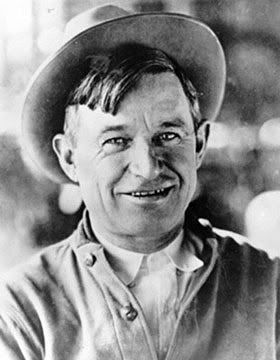


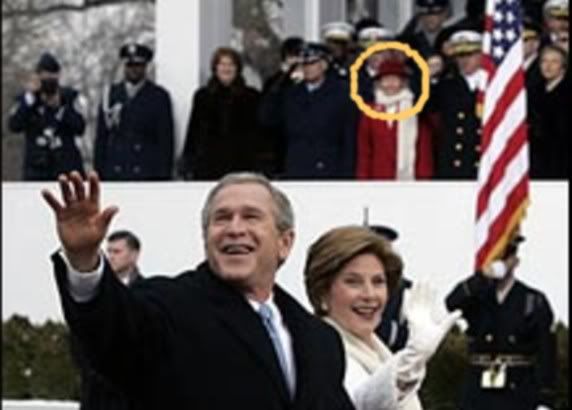
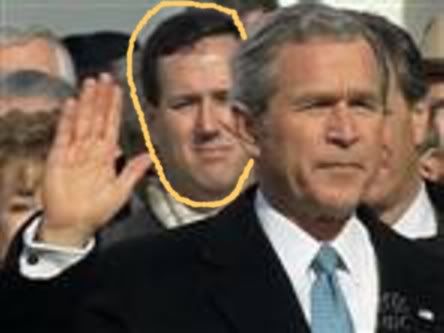
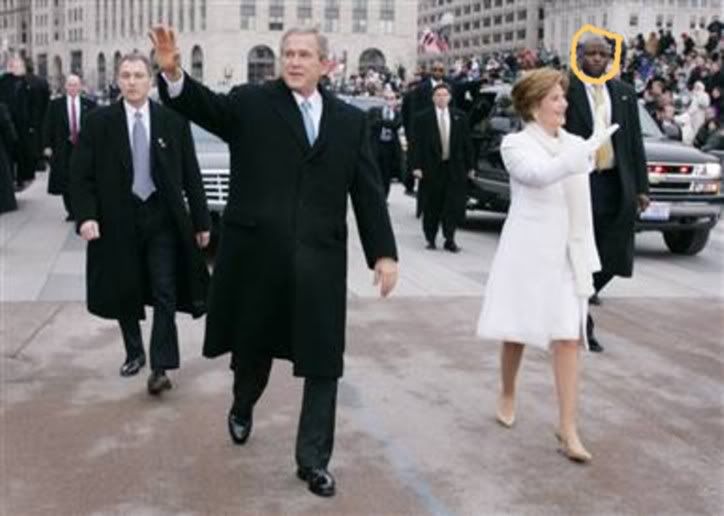

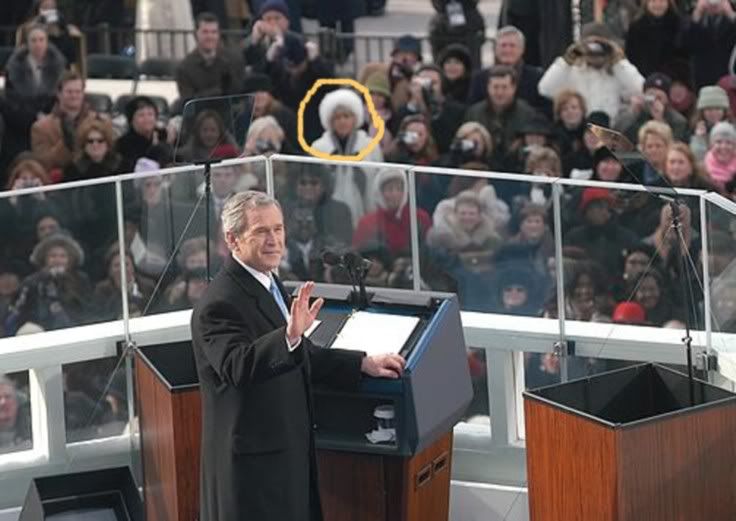
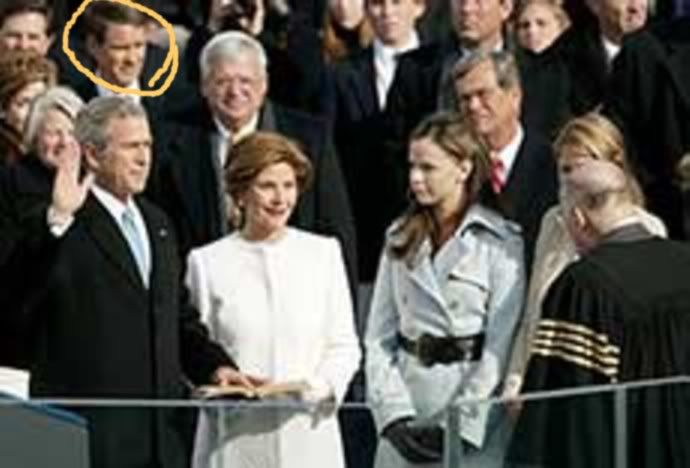
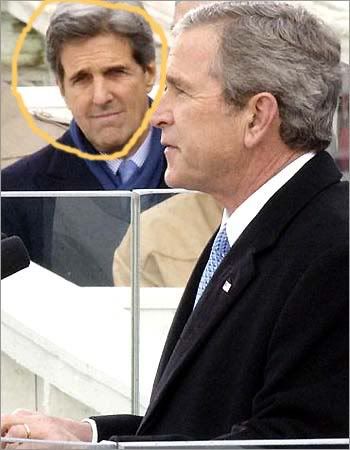

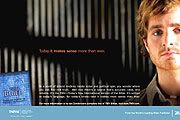

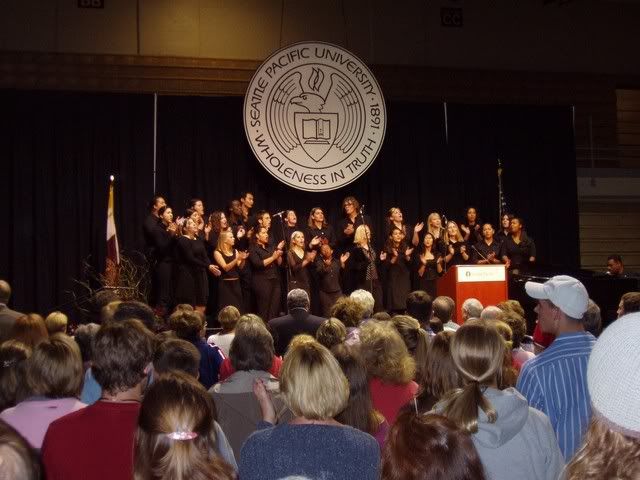





 and her proud Grandma T joined them both in a happy photo op afterwards.
and her proud Grandma T joined them both in a happy photo op afterwards.  Dad managed to wind up in a few pictures as well, but humility precluded him from posting anything with his face on it tonight.
Dad managed to wind up in a few pictures as well, but humility precluded him from posting anything with his face on it tonight.



